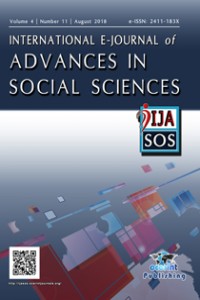Abstract
References
- Gómez Escalonilla, L. D. (1992). Acción cultural y política exterior: la configuración de la diplomacia cultural durante el régimen franquista: (1936-1945), edit. Universidad Complutense, Madrid. Howkins J. (2001). The Creative Economy: How People Make Money From Ideas, Allen Lane The Penguin Press, London, UK Montoya S. (2012). Política exterior y diplomacia cultural: hacia la continuidad de la inserción internacional constructiva. Aprendizajes ilustrativos de experiencias internacionales notables, edit. Universidad Externado de Colombia, Colombia. Nye J. S. (2004). Soft Power: The Means to Success in World Politics, Public Affairs, New York. Pigman G. A. (2010). Contemporary Diplomacy, edit. Polity Press, Cambridge. Unesco (1969). Studies and documents on cultural policies, edit. Unesco, Paris. Unesco (2002). Declaración Universal sobre la Diversidad Cultural.http://unesdoc.unesco.org/images/0012/001271/127162s.pdf
A THEORETICAL APPROACH TO THE TERMS OF CULTURAL POLICY AND CULTURAL DIPLOMACY AS PILLARS OF "SOFT POWER"
Abstract
This study focuses on the theoretical analysis
of the concepts of “cultural policy” and “cultural diplomacy”. Adopting the
UNESCO definition, we analyze important aspects of "cultural policy"
and present relevant key-points such as procedures, models and objectives of
cultural policy. Cultural policy is determined according to various components,
and in each case the existence of strategies for the implementation of the
"cultural policy" is important. An efficiently designed cultural
policy must have solid constitutional bases; it must always respect and comply with
international declarations and conventions, as well. Of particular interest is
how new diplomatic practices, more suitable to the contemporary international
scene, emerged from national cultural policy making, leading to the development
of cultural diplomacy.
Starting from the 20th century, in the context
of the exercise of cultural policy and cultural diplomacy at a national level,
the cultural sector has been significantly upgraded, it has received a
fundamental role in the relations of states and it has been officially included
in the foreign policy structure. The concept of culture has formed the basis on
which cultural policy and cultural diplomacy have been developed.
In the context of (i) an overwhelming
effervescence of interculturalism in the international arena and (ii) the
growing importance of “soft power”, culture suggests an excellent heritage for
a state: culture can enhance the international presence of a state in a variety
of fields, thus, upgrading accordingly its standing on the global cultural
scene.
Culture, cultural policy and cultural diplomacy
are concepts closely related and interdependent. Culture has become one of the
most basic foreign policy issues and its presence is indisputable in the
formation of the global image of each state. In the following, we address in
detail “cultural diplomacy” emphasizing on its nature, main objectives and
expected benefits for states exercising it. Furthermore, we present and analyze
how culture emerged to a collective social practice which is increasingly
influential in international relations and is included in the priorities of the
international agenda.
References
- Gómez Escalonilla, L. D. (1992). Acción cultural y política exterior: la configuración de la diplomacia cultural durante el régimen franquista: (1936-1945), edit. Universidad Complutense, Madrid. Howkins J. (2001). The Creative Economy: How People Make Money From Ideas, Allen Lane The Penguin Press, London, UK Montoya S. (2012). Política exterior y diplomacia cultural: hacia la continuidad de la inserción internacional constructiva. Aprendizajes ilustrativos de experiencias internacionales notables, edit. Universidad Externado de Colombia, Colombia. Nye J. S. (2004). Soft Power: The Means to Success in World Politics, Public Affairs, New York. Pigman G. A. (2010). Contemporary Diplomacy, edit. Polity Press, Cambridge. Unesco (1969). Studies and documents on cultural policies, edit. Unesco, Paris. Unesco (2002). Declaración Universal sobre la Diversidad Cultural.http://unesdoc.unesco.org/images/0012/001271/127162s.pdf
Details
| Primary Language | English |
|---|---|
| Journal Section | Articles |
| Authors | |
| Publication Date | August 31, 2018 |
| Submission Date | June 13, 2018 |
| Published in Issue | Year 2018Volume: 4 Issue: 11 |
Contact: ijasosjournal@hotmail.com
The IJASOS Journal's site and its metadata are licensed under CC BY
Published and Sponsored by OCERINT International © 2015- 2025


